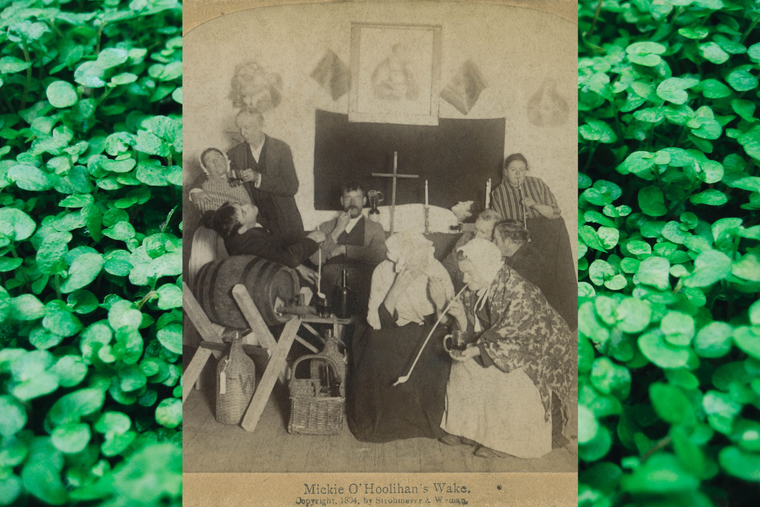- Feb 5, 2002
- 166,654
- 56,277
- Country
- United States
- Faith
- Catholic
- Marital Status
- Married
- Politics
- US-Others
For all the clichés, the Catholic triduum of death, resting and resurrection is, at the heart, a traditional ritual of mourning, community and remembrance of a life well lived, traditionally in the family home but adapted for current times and locales.
The Irish wake has been the subject of poems, songs, films and stage plays. For all the clichés, the Catholic triduum of death, resting and resurrection is, at the heart, a traditional ritual of mourning, community and remembrance of a life well lived, traditionally in the family home but adapted for current times and locales.
A wake is not a uniquely Irish custom, but in parts of Ireland, it still provides an opportunity for parish, community and friends, far and wide, to pay respects.
“The wake is an essential part of the life of a parish because theologically, sacramentally, sociologically and psychologically, it works — because the whole thing is about story, and everybody has a story,” Father Francis Bradley, a parish priest in Buncrana, County Donegal, told the Register.
And the tradition extends to the Irish diaspora.
In Boston, Father William Kennedy, pastor of St. Monica and St. Peter Lithuanian parishes, who has not seen any instances of a wake in a family home, underscores the importance of praying for the beloved dead.
“I have seen wakes in the church in the morning or evening before the Mass,” he told the Register. “We would use the prayers for the vigils found in the Rite of Christian Burial.”
His parish is clear in its guidance that the liturgy of Christian burial signifies the faith community’s pivotal beliefs in life, death and eternal life and that sadness and joy must be seen together.
Continued below.

 www.ncregister.com
www.ncregister.com
“I’m sorry for your troubles.” — traditional Irish greeting to the bereaved
The Irish wake has been the subject of poems, songs, films and stage plays. For all the clichés, the Catholic triduum of death, resting and resurrection is, at the heart, a traditional ritual of mourning, community and remembrance of a life well lived, traditionally in the family home but adapted for current times and locales.
A wake is not a uniquely Irish custom, but in parts of Ireland, it still provides an opportunity for parish, community and friends, far and wide, to pay respects.
“The wake is an essential part of the life of a parish because theologically, sacramentally, sociologically and psychologically, it works — because the whole thing is about story, and everybody has a story,” Father Francis Bradley, a parish priest in Buncrana, County Donegal, told the Register.
And the tradition extends to the Irish diaspora.
In Boston, Father William Kennedy, pastor of St. Monica and St. Peter Lithuanian parishes, who has not seen any instances of a wake in a family home, underscores the importance of praying for the beloved dead.
“I have seen wakes in the church in the morning or evening before the Mass,” he told the Register. “We would use the prayers for the vigils found in the Rite of Christian Burial.”
His parish is clear in its guidance that the liturgy of Christian burial signifies the faith community’s pivotal beliefs in life, death and eternal life and that sadness and joy must be seen together.
Continued below.

The Traditional Irish Wake Highlights Importance of Praying for Departed Souls
For all the clichés, the Catholic triduum of death, resting and resurrection is, at the heart, a traditional ritual of mourning, community and remembrance of a life well lived, traditionally in the family home but adapted for current times and locales.
